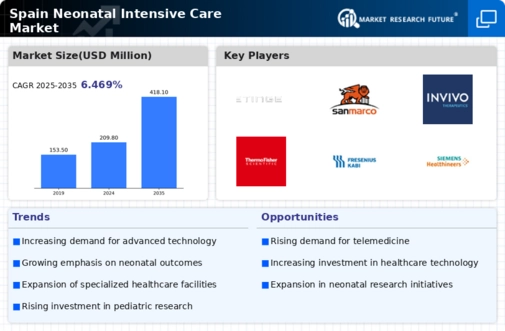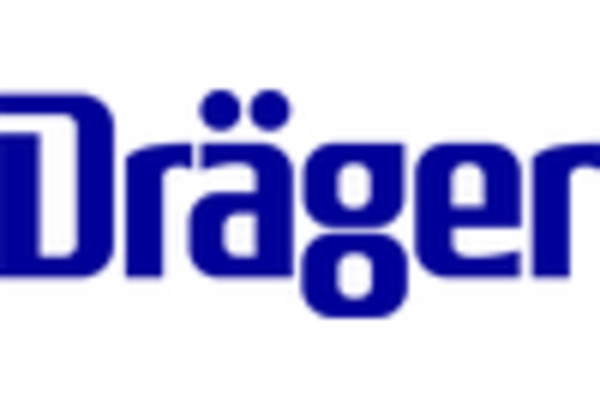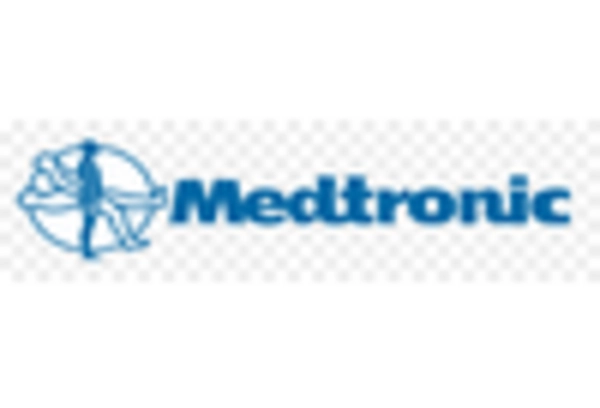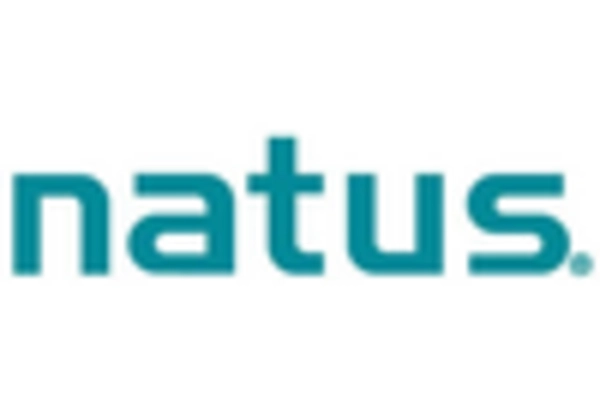Government Initiatives and Funding
Government initiatives aimed at improving maternal and child health are significantly impacting the neonatal intensive-care market in Spain. The Spanish government has allocated substantial funding to enhance healthcare infrastructure, particularly in neonatal care. Recent budgets indicate an increase of 15% in funding for maternal and child health programs, which directly benefits NICUs. These initiatives often include the establishment of new facilities, training programs for healthcare professionals, and the procurement of advanced medical equipment. As a result, the neonatal intensive-care market is likely to see enhanced service delivery and improved health outcomes for neonates. The commitment to investing in neonatal care reflects a broader strategy to reduce infant mortality rates and improve overall healthcare quality in Spain.
Rising Prevalence of Premature Births
The neonatal intensive-care market in Spain is experiencing growth due to the increasing prevalence of premature births. Recent statistics indicate that approximately 7.5% of all live births in Spain are preterm, necessitating specialized care. This trend is likely to drive demand for neonatal intensive-care units (NICUs) equipped with advanced technology and skilled personnel. As healthcare providers strive to improve outcomes for these vulnerable infants, investments in neonatal care facilities are expected to rise. The focus on enhancing neonatal care capabilities may lead to a more robust market, as hospitals seek to provide comprehensive services tailored to the needs of premature infants. Consequently, the neonatal intensive-care market is poised for expansion, reflecting the urgent need for specialized care in response to this demographic shift.
Increasing Awareness of Neonatal Health
There is a growing awareness of neonatal health issues among the Spanish population, which is positively influencing the neonatal intensive-care market. Public health campaigns and educational initiatives have raised awareness about the importance of early intervention and specialized care for newborns. This heightened awareness is likely to lead to increased demand for NICU services, as parents become more informed about the risks associated with premature births and other neonatal conditions. Additionally, healthcare providers are responding to this trend by enhancing their service offerings and improving the quality of care in NICUs. As a result, the neonatal intensive-care market is expected to expand, reflecting the changing attitudes towards neonatal health and the importance of specialized care.
Technological Integration in Healthcare
The integration of advanced technologies in healthcare is transforming the neonatal intensive-care market in Spain. Innovations such as telemedicine, artificial intelligence, and advanced monitoring systems are becoming increasingly prevalent in NICUs. These technologies facilitate real-time monitoring of neonates, enabling healthcare providers to respond swiftly to any complications. A recent survey indicated that 60% of NICUs in Spain have adopted some form of telemedicine, enhancing access to specialist care. This technological shift not only improves patient outcomes but also streamlines operations within healthcare facilities. As hospitals continue to invest in these technologies, the neonatal intensive-care market is expected to grow, driven by the demand for more efficient and effective care solutions.
Collaboration Between Healthcare Institutions
Collaboration between various healthcare institutions is emerging as a key driver for the neonatal intensive-care market in Spain. Partnerships between hospitals, research institutions, and universities are fostering innovation and improving care standards in NICUs. These collaborations often focus on research initiatives aimed at understanding neonatal health challenges and developing new treatment protocols. Recent data suggests that collaborative projects have led to a 20% increase in research funding for neonatal care in Spain. Such partnerships not only enhance the quality of care provided but also contribute to the overall growth of the neonatal intensive-care market. As institutions work together to share knowledge and resources, the potential for advancements in neonatal care becomes increasingly promising.
















